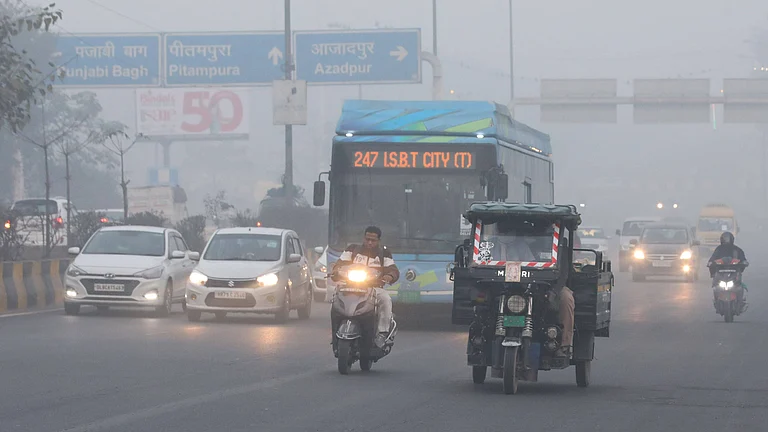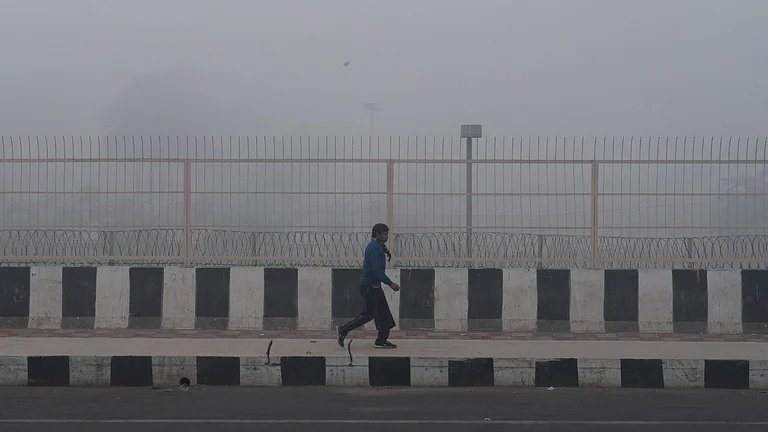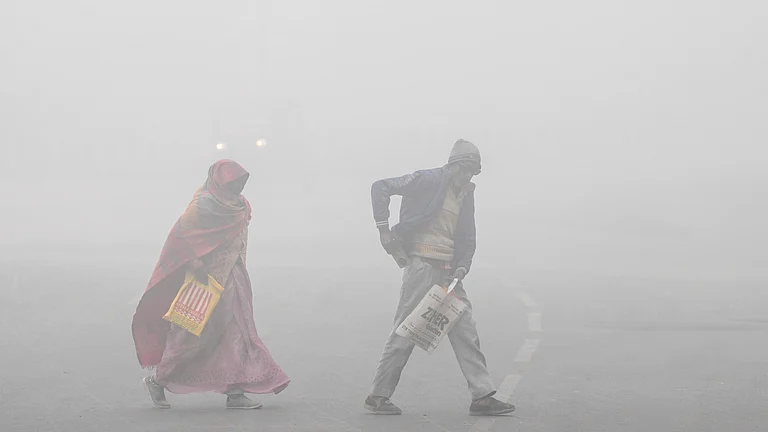
Delhi’s AQI remains ‘poor’ with pollution expected to worsen by evening.
Ophthalmologists report 60% rise in eye ailments linked to air pollution.
Children and elderly most vulnerable to allergic conjunctivitis and eye irritation.
Delhi continued to experience 'poor' air quality on the morning of November 6, recording an AQI at 278 and it is likely to deteriorate to the 'very poor' range by evening, according to Central Pollution Control Board (CPCB) data, reported PTI.
The Air Quality Early Warning System has predicted further deterioration, with pollution levels likely to slip into the 'very poor' category between November 6 and 8.
It also said that wind speed is expected to gradually increase, reaching up to 15 kmph from the northwest direction in the afternoon, before decreasing to below 10 kmph during the evening and night on November 6. The forecast further indicates a mainly clear sky with mist or haze.
An AQI between 0 and 50 is considered "good", 51 to 100 "satisfactory", 101 to 200 "moderate", 201 to 300 "poor", 301 to 400 "very poor" and 401 to 500 "severe", as per the CPCB classification.
The minimum temperature settled at 12.7 degrees Celsius, 2.6 notches below the season's average, while the humidity was recorded at 75% at 8.30 am.
The maximum temperature is likely to hover around 29 degrees Celsius, with the weather department forecasting mist.
Surge in Eye Ailments
A thick blanket of smog and toxic air in Delhi has triggered a sharp rise in eye-related ailments like allergies, dryness, burning sensations and excessive watering, affecting both adults and children, PTI reported citing the city's doctors.
With the air quality plunging to the severe category after Diwali, ophthalmologists say they have seen a 60% surge in such cases, blaming the the toxic cocktail of smoke, particulate matter, and chemical residues from firecracker burning. The dangerously high level of pollution, they warned, was not only harmful for the lungs, but for the eyes as well.
Dr Ikeda Lal, Senior Cornea, Cataract and Refractive Surgery Specialist at Delhi Eye Centre and Sir Ganga Ram Hospital, told PTI, "Every year after Diwali, we brace for a rise in eye complaints. The number of patients complaining of itching, redness, and irritation has gone up by almost 50-60%.
"We are seeing patients with severe eye allergies, and those who already have dry eyes are experiencing much more discomfort than usual. The combination of pollution, dust and chemical exposure is proving extremely harmful for the ocular surface," Lal said.
Delhi's air quality, which has remained in the "severe" category since Diwali, has left citizens gasping. Experts warn that prolonged exposure to such toxic air can lead to chronic eye conditions, particularly among people who spend long hours outdoors, such as traffic police, delivery agents, and school children.
According to doctors, children's eyes are more sensitive, and since they tend to spend more time outdoors, the risk of allergic conjunctivitis and infections increases.
The elderly, on the other hand, often experience reduced tear production, which makes their eyes drier and more susceptible to irritation. Older adults should stay indoors during peak pollution hours to ensure their eyes remain well-lubricated, they said.
The doctors cautioned that ignoring eye irritation or delaying treatment can lead to long-term damage to the cornea and tear glands.
(With inputs from PTI.)

































